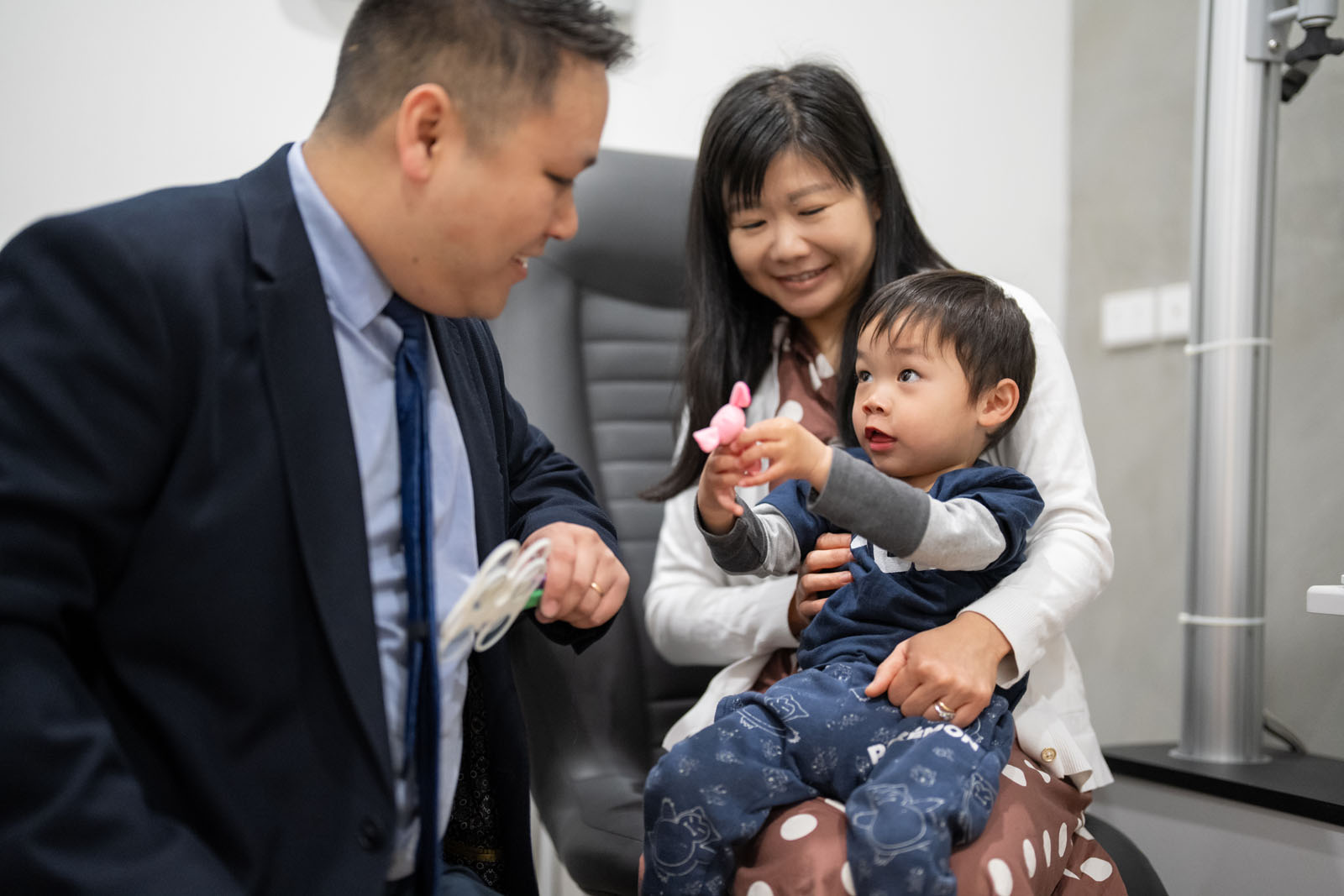Does my child need glasses or contact lenses?
Glasses may be needed if your child has conditions like short-sightedness (myopia), long-sightedness, or astigmatism. Contact lenses are suitable for children from the age of 6, especially if they play sports or prefer not to wear glasses. Our optometrists in Ringwood and Mornington, Melbourne will assess your child’s lifestyle, eye health, and maturity before recommending the best path for your child.
What are the most common childhood eye conditions?
Common eye conditions in children include: Myopia (short-sightedness) – Hyperopia (long-sightedness) – Astigmatism – Amblyopia (lazy eye) – Strabismus (turned or crossed eyes) Regular children’s eye tests with a Melbourne-based optometrist are essential to detect these conditions early and support healthy vision development.
How can I best protect my child's eyes?
To keep your child’s eyes healthy: – Encourage outdoor play to help prevent any eye diseases – Provide a balanced diet rich in leafy greens, fish, and colourful fruits – Ensure they wear sunglasses with UV protection outdoors. Also to further protect the eyes fro myopia, ensure minimum of 90 mins each day in the sun – Limit screen time and encourage breaks during close-up tasks Our team at A Plus Optometry offers personalised advice on maintaining children’s eye health in Melbourne’s environment.
What if there's a family history of vision problems?
A family history of eye conditions like myopia, glaucoma, or strabismus increases your child’s risk. If vision problems run in your family, we recommend more frequent eye tests starting at an earlier age. Our experienced optometrists in Ringwood ad Mornington, Melbourne can monitor your child’s eye health closely and provide the best care.
When should my child have their first eye exam?
Children can have their eye tested at A+ Optometry from infancy. However, we recommend to have their first comprehensive eye test at 3 years, and before starting primary school. Early eye exams can detect problems like lazy eye or turned eyes, which are easier to treat when caught early. At A Plus Optometry in Melbourne, we recommend regular eye checks during school age to ensure optimal vision and development.
What can I expect during my child's eye exam?
Children’s eye tests at A Plus Optometry are fun, friendly, and age-appropriate. We assess: – Visual acuity (clarity of sight) – Eye tracking and teaming – Depth perception and colour vision – Eye health using child-friendly equipment Most exams take 30–45 minutes and can identify problems long before your child notices symptoms.
What are the signs that my child may need glasses?
Watch for these common signs your child may need glasses: – Squinting or closing one eye – Frequent eye rubbing or blinking – Complaints of headaches or tired eyes – Holding books or screens too close – Difficulty seeing the whiteboard at school If you notice any of these symptoms, book a children’s eye test in Melbourne with A Plus Optometry for a full assessment.
What is the advice local Optometrists give in regards to screen time & children’s eyes?
Melbourne optometrists recommend following the 20-20-20 rule: every 20 minutes, take a 20-second break and look 20 feet away. We also suggest: – Limiting recreational screen time – Ensuring screens are at eye level and well-lit – Encouraging outdoor activities daily These habits help prevent digital eye strain and myopia progression in children.
What are the top eye health tips for children?
These simple habits help keep your child’s vision clear and healthy through every stage of development: – Schedule regular eye exams, even if there are no symptoms – Encourage at least 90 minutes of outdoor play daily – Use protective eyewear during sports or activities – Offer a nutrient-rich diet for growing eyes – Limit excessive device use and screen time
Are school vision screenings enough for children?
No, school vision screenings are limited and often miss serious vision problems. They typically assess only distance vision and don’t check eye health or how well the eyes work together. A comprehensive children’s eye exam with a qualified Melbourne optometrist is essential for detecting issues early and supporting your child’s learning and development.
